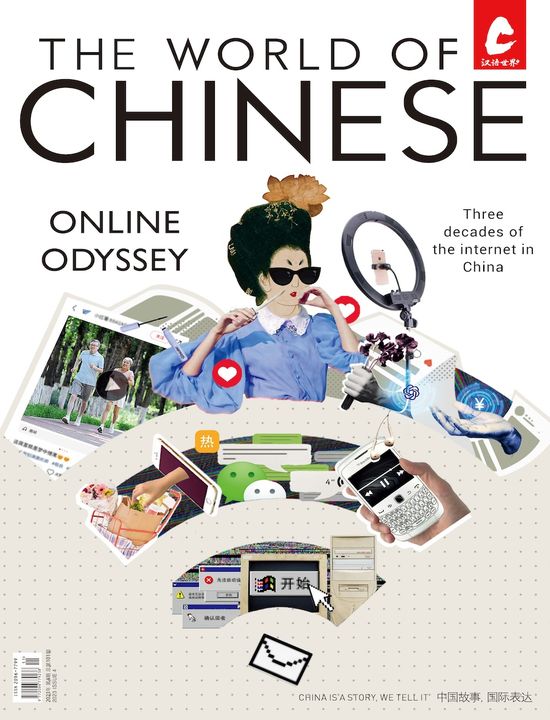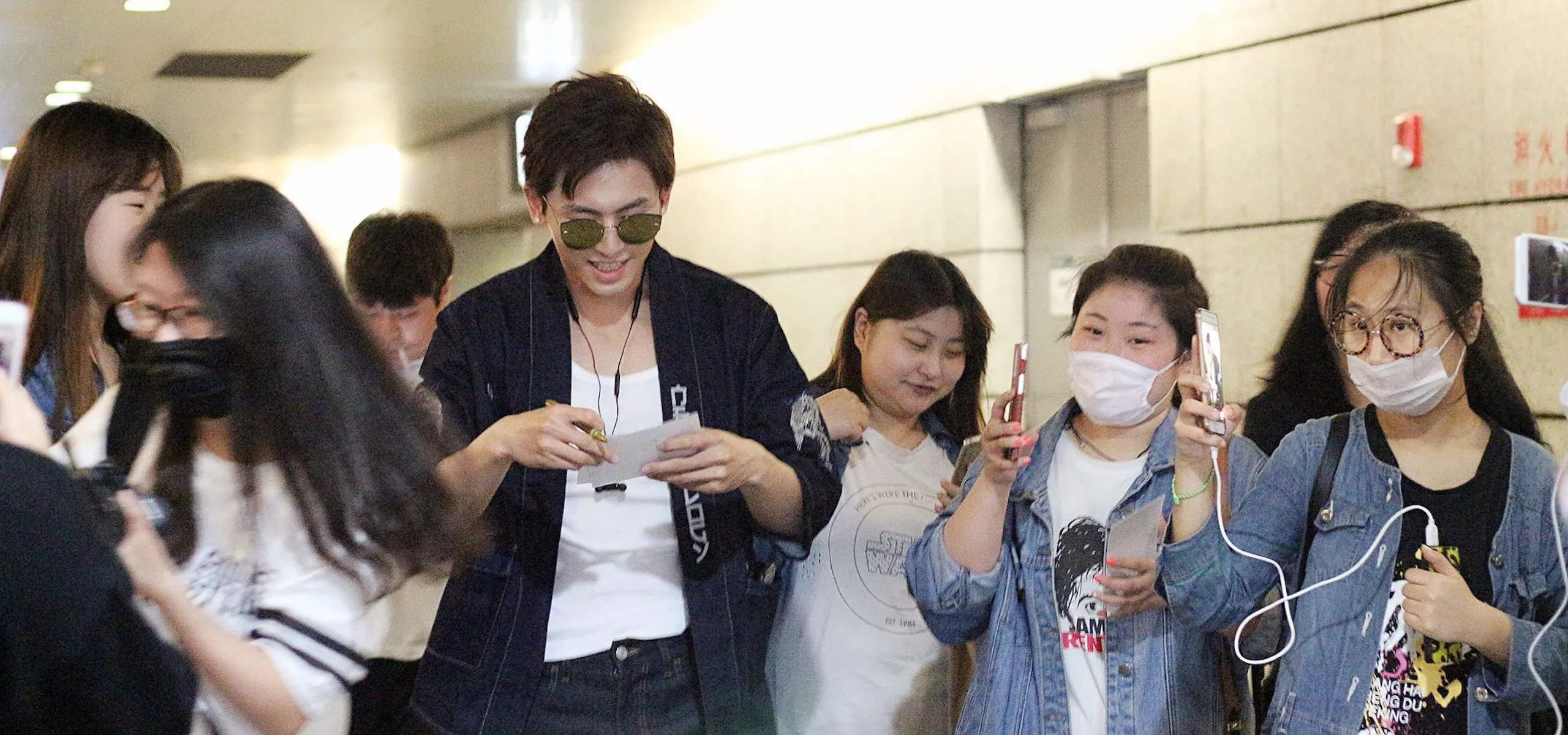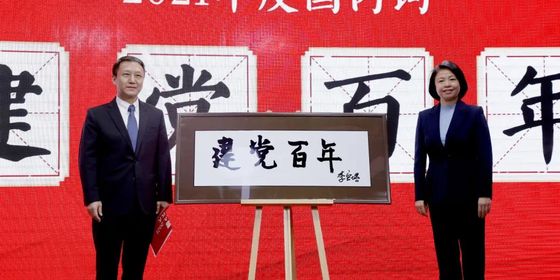As male stars play more complex characters, female fans are giving them traditionally feminine labels
Wherever TV star Zhang Zhehan goes, you can be sure that groups of manic, mainly female, fans will be gathered, hoping to catch a glimpse of their dashing idol.
But listen carefully to the excited screams of the crowds, and you probably won't hear them calling out his name, but shouting: "Wife! Wife! (老婆 lǎopo! 老婆 lǎopo!)."
Zhang rose to fame this year for his role as Zhou Zishu, a ferocious swordsman with a gentle soul in the costume martial-arts drama Word of Honor. He is lauded by fans not for his machismo but for his sentimentality. Apparently, a common way for fans to address him is: "My wife Zhang Zhehan, who is too weak to take care of himself but is a basketball MVP, an excellent singer, a seductive beauty who is sweeter than candy, plus a bad cook and an awful dancer."
Zhang is not the only male star fans have been giving female labels—its part of a trend on social media that has fans of celebs flipping the genders of their idols. The gender reversal, known as “inverted Mary Sue (逆苏 nìsū, or 泥塑 nísù),” is mainly used by female fans toward male stars as a term of endearment, while it also reflects shifting notions of how male stars are perceived—no longer restricted to macho personas, but praised for their cuteness and metrosexual style.
A Mary Sue refers to a (normally female) one-dimensional fictional character who is unfailingly faultless and liked by everyone in the narrative to the point that their perfection becomes boring. While a Mary Sue character may have traditionally masculine traits, an "inverted Mary Sue" refers to fans feminizing male celebs.
In addition to “wife,” male celebrities are addressed as "sister (妹妹 mèimei)," "daughter (女儿 nǚ’ér)," "princess (公主 gōngzhǔ)," "mummy (妈咪 māmī)," and "male mom (男妈妈 nán māmā)." When searching "wife" on Weibo or Bilibili, a video-sharing platform, both male and female celebrities appear.
“The word ‘wife’ subtly conveys my respect and love toward [Zhang],” Ruby Guo, a 25-year-old self-described "expert" fan of Zhang from Beijing tells TWOC.
"After watching him in his role, I discovered that the actor himself also has a fragile and sensitive side. He has performed in many dramas, but was never a hit. He had leg surgery, which forced him to give up his favorite sport, basketball," she says. "Those sufferings made me feel compassionate toward him. Meanwhile, he is strong and competitive, treating his jobs seriously. I admire his qualities, so I mentally hope to protect him and let him accomplish what he wants to do.”
Likewise, terms like "handsome (帅 shuài)" and "cool (酷 kù)" previously reserved mainly for male stars, are increasingly used to describe female celebs. They are also referred to as "my husband (我老公 wǒ lǎogōng)," "big boss (大老板 dà lǎobǎn)," and "brother (哥 gē)" to illustrate their resilient and mature nature.














